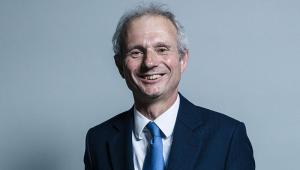If a tourist tax was levied at £5 a night – the most commonly talked-about level – it would raise just £2bn extra of revenue for local authorities a year, Phillips told delegates at Public Finance Live. If a lesser levy of £1 a night was charged, this would raise just £400m a year, the IFS has calculated.
“Tourism tax is not going to solve the financial issues facing councils,” the IFS associate director said. He told delegates the IFS had concluded a local income tax – on top of the national income tax and council tax – would be a better solution to raise extra revenue for local government.
“If we want to have more generous local government services or maintain current levels, we have to be honest with the public and say taxes have to rise,” he told the ‘Developing local resilience’ session.
The IFS has argued a local income tax could provide “substantial sums of money”, calculating each 1% of local income tax on all tax bands would yield about £6bn extra a year – the equivalent to almost 15% of councils’ core budgets. People would pay out of their salaries to the HMRC, as centrally collected income tax is, but that money would then be handed back to the local authority where the resident lives, Phillips suggested.
The move would also encourage councils to grow their local economies, in particular raising the incomes and employment levels amongst residents, Phillips added.
Other taxes, such as local corporation and value added or sales taxes, would be more difficult to administer and comply with, the IFS concluded.
Phillips also pointed out that areas such as London and the home counties – more affluent areas – were more likely to lose out with the fair funding review. This is because while they have high needs levels, they also have greater revenue-raising powers than poorer areas, through business rates and higher council taxes.
Ileana Steccolini, professor of accounting at Essex Business School, spoke at the session about research she was involved with, which is looking at how local authorities in different nations have coped with the financial crisis.
They had different ‘anticipatory coping capacities’, she told delegates, and some countries’ local authorities were more prepared than others, she added.
“Austrian local governments were so relaxed it didn’t seem to them there was a crisis,” she told the audience. “In the UK it was the opposite – people were ready to act. Italy was somewhere in the middle – there was some awareness,” she said.
She also explained there were three main reactions to the crisis – “buffering, adapting and transforming” - buffering being the least radical and transformation being the most radical. Local authorities in different countries also had varying concerns, such as migration in Italy and Germany, and Brexit in the UK.











